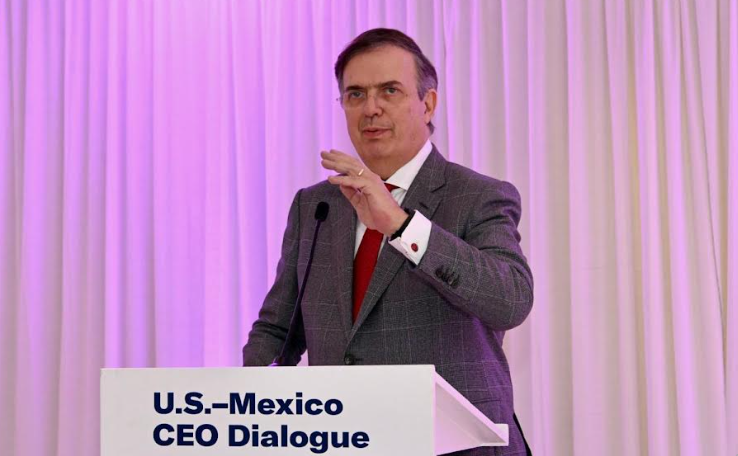The Treaty between Mexico, the United States and Canada (USMCA) is the best deal that Mexico and the United States have ever made, affirmed Marcelo Ebrard, Secretary of Economy.
In the framework of the U.S. Mexico CEO Dialogue and the High Level Summit between the leaders of both countries, Ebrard highlighted the importance of the T-MEC for the three countries involved.
“We see this dialogue as very important, because we want to defend the FTA (USMCA) between the two countries; it is the best deal we have ever made,” Ebrard told businessmen.
The USMCA
This Tuesday, in the U.S. Mexico CEO Dialogue, more than 200 CEOs of companies will participate in Mexico City.
“We are the envy of many countries, I can tell you that I have just become Foreign Minister,” added Ebrard.
The T-MEC includes 34 chapters and 12 side letters. It retains most of the NAFTA chapters, but introduces key changes. These include modifications to market access for automobiles, agricultural products, investment, government procurement and intellectual property rights (IPR). It also incorporates new provisions on labor and the environment.
In addition, the new agreement features rules on digital trade, state-owned enterprises and currency misalignment.
“(The USMCA) gives us a substantial advantage over other countries in the world, both for the United States, Mexico and Canada,” Ebrard said.
Value chains
Many economists believe NAFTA helped U.S. manufacturing industries, especially automotive, become more competitive. This was achieved through the development of North American supply chains.
Much of the merchandise trade between the United States and Mexico is production sharing. Manufacturers in both countries collaborate to create products.
The flow of intermediate inputs produced in the United States and exported to Mexico, along with the return of finished goods, significantly increased the relevance of the border region as a production zone.
A U.S. congressional analysis notes that U.S. manufacturing industries, such as automotive and electronics, rely heavily on Mexican manufacturers.
In the automotive sector, for example, there are complex connections between suppliers and assembly points in both countries.

